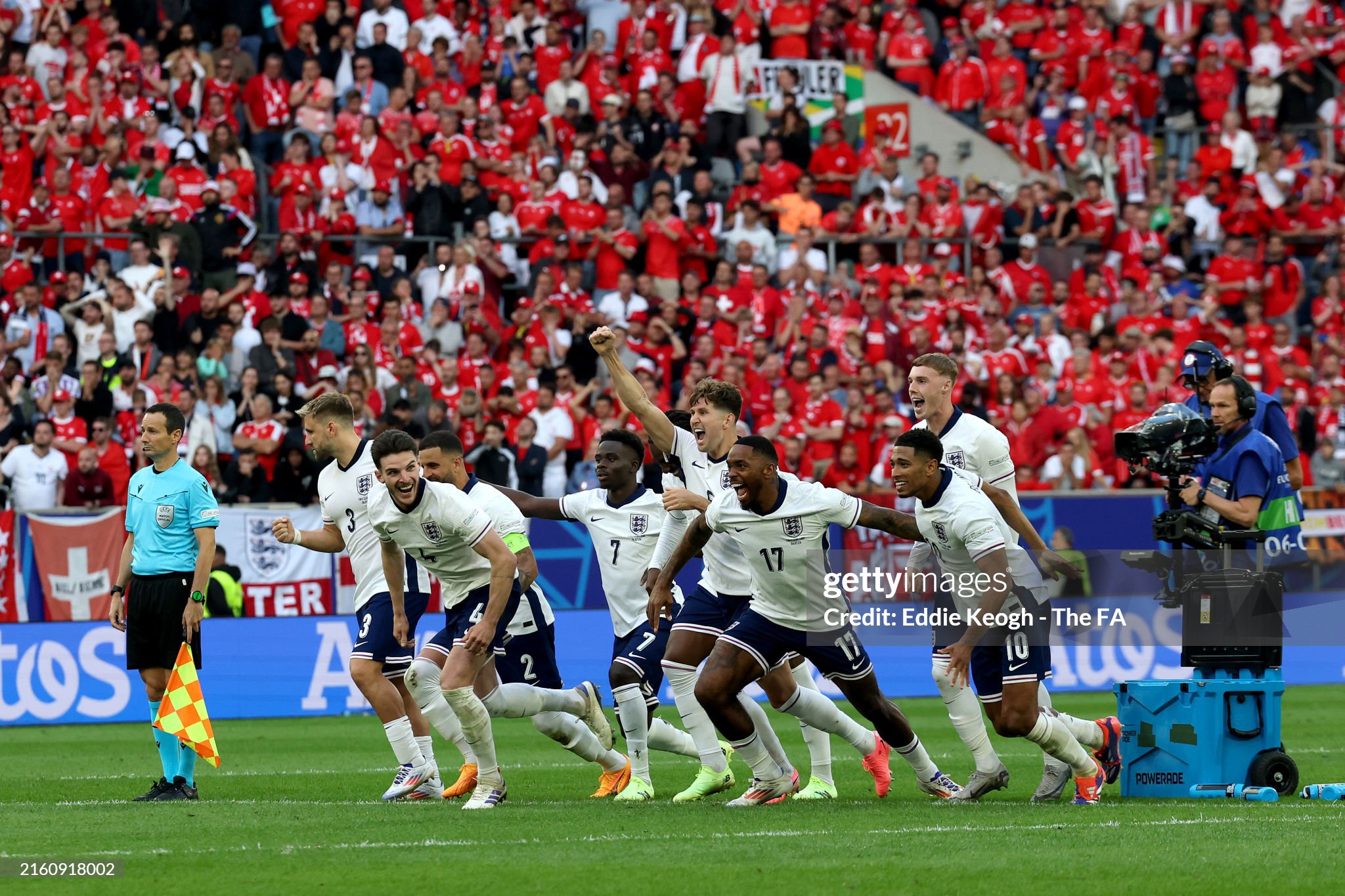England takes penalty-taking extremely seriously. This is evident from the psychological tricks used during a penalty shootout. The key strategies: no longer standing arm in arm after a missed penalty and assigning each player their own 'buddy.'
 Embed from Getty Images
Embed from Getty Images
The English team secured their spot in the Euro semifinals on Saturday at the expense of Switzerland via a penalty shootout.
In past tournaments, this often turned out very differently for England, with their history of penalty shootout failures haunting them for years. To address this issue, the English Football Association has taken significant steps by hiring Norwegian sports scientist Geir Jordet. Jordet is renowned for his extensive research on the psychology of penalties and has authored a book on the subject.
Several changes were noticeable with England's approach. For instance, the players no longer stand arm in arm during the penalty shootout, as was traditionally done. According to Jordet, this change aims to provide more genuine moral support for each other, rather than a superficial display of unity. This adjustment is intended to improve the mental state of the player who misses a penalty. "Standing arm in arm gives the feeling of 'us against you' for the player who is walking back," Jordet explained to NOS. By eliminating this practice, the team hopes to foster a more supportive and less isolating environment for players returning after a missed shot.
Another significant change is the introduction of the buddy system. Each England player has a designated buddy, a teammate who comes to support him immediately after he takes a penalty kick. This system ensures that no player has to walk back to the group alone, which can be a daunting experience, especially after a miss. Jordet elaborated, "If someone misses, he needs to feel like part of the group again as quickly as possible. Quickly receiving the player who took the shot has no effect on the penalty itself, as it has already happened. It's indirect support, so that other takers see that their teammates are always there for them. This can help to slightly reduce the pressure."
These psychological strategies reflect a broader effort to address the mental aspects of the game, which are often overlooked in favor of physical training. England's focus on mental resilience and team cohesion aims to change their narrative in penalty shootouts and enhance their overall performance under pressure.
As England prepares for their semifinal match, the effectiveness of these new strategies will be closely watched. Fans and analysts alike are eager to see if these psychological adjustments can make a tangible difference in high-stakes situations. The team's commitment to addressing their historical weaknesses demonstrates a proactive and innovative approach to achieving success in international tournaments.









